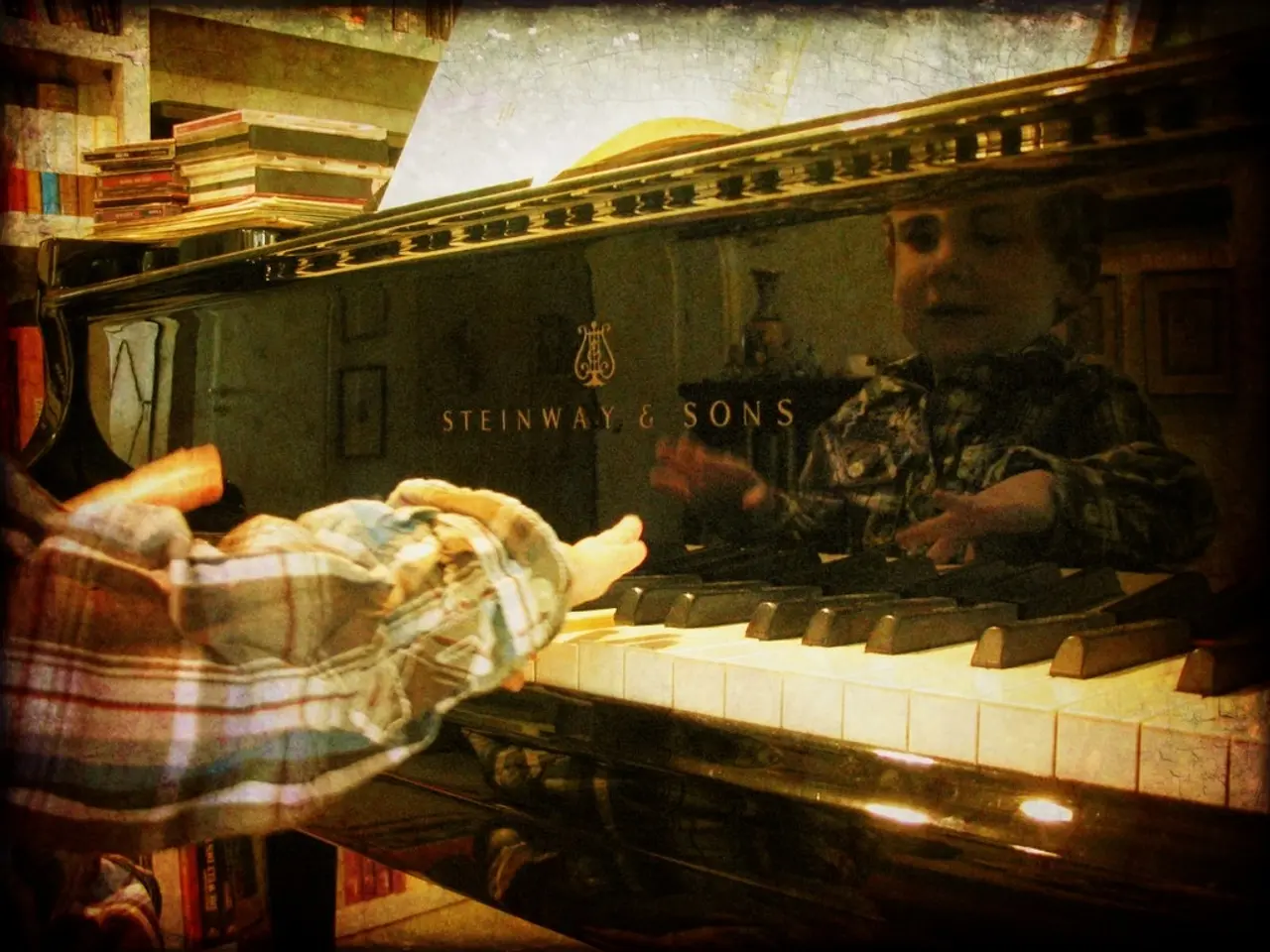Impact of Music on Enhancing Brain Growth in Childhood
In a world where the importance of early childhood development is increasingly recognized, music stands out as a powerful tool for fostering cognitive, emotional, and social growth in children.
Research has shown that being bilingual, a skill that shares some similarities with musical training, boosts problem-solving, memory, and creativity in kids. Similarly, musical training enhances language development, improving auditory skills involved in speech sound recognition and pattern identification, which are crucial for early literacy and language comprehension [1][3].
One of the key cognitive benefits of musical training is its impact on problem-solving abilities. By engaging both brain hemispheres, music promotes cognitive flexibility, creative and logical thinking, and executive function. These cognitive improvements support complex problem-solving and innovative thinking [1][3].
Emotionally and socially, music supports emotion regulation development by helping children manage complex emotions, improve emotional responses, and enhance social skills through shared musical interaction and co-regulation processes [2][4].
Music education also contributes to improved memory and brain development in young children. Learning to harmonize, for instance, can improve problem-solving skills, while singing songs helps grow vocabulary and improve sentence structure [1].
Being part of a band or choir teaches children about teamwork, sharing ideas, and supporting each other. Playing in groups, like bands or choirs, teaches teamwork, communication, and aiming for a shared goal [2].
Moreover, music lessons help in many areas of learning and last a lifetime. Playing instruments like the piano or violin improves hand skills and spatial thinking, while singing lessons boost language skills and emotional expression by teaching about pitch, rhythm, and lyrics [1].
Quality music education for kids prepares them for success in many areas of life. Studies have shown that music students often have better vocabularies and reading skills, and they do better in reading and speaking [1].
Furthermore, music education in schools can help build skills such as coordination and creativity in children, contributing to their overall development. Music makes learning fun for young kids, using rhythms and melodies. Drumming lessons, for example, help kids with their coordination and timing [1].
In conclusion, musical training acts as a multifaceted brain exercise, delivering cognitive, emotional, and social advantages that extend throughout childhood and into later life stages [1][2][3]. These skills are crucial for their future success and happiness.
References: [1] Moreno, F. (2014). The neuroscience of music: cognitive, affective, and social perspectives. Oxford University Press. [2] Hettich, S. L., & Trainor, L. J. (2010). Music and the developing brain. Current opinion in neurology, 23(2), 168-174. [3] Strait, E. F., & Kraus, N. (2011). The neural underpinnings of music and speech processing: Insights from individual differences. Trends in cognitive sciences, 15(3), 143-150. [4] Thompson, C. M., & Kraus, N. (2005). The neural basis of music perception. Nature Reviews Neuroscience, 6(1), 70-79.
- The cognitive benefits of musical training extend beyond problem-solving, as it also enhances learning and memory, improving hand skills, spatial thinking, and language skills when playing instruments like the piano or violin.
- Just like being bilingual, musical training can boost emotional intelligence, helping children manage complex emotions, improve emotional responses, and strengthen social skills through shared musical interaction and co-regulation processes.
- Furthermore, education and self-development, involving music, plays a vital role in the overall development of a child, contributing to their communication skills, coordination, creativity, and future success - both academically and in their lifestyle.
- The role of music in child development extends beyond the traditional classroom, as music makes learning fun and engaging for young kids, using rhythms and melodies to improve their auditory skills, speech sound recognition, and pattern identification - skills crucial for language development and early literacy.




